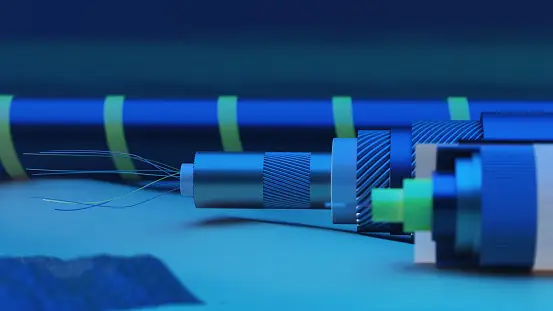People living in nearly a dozen African countries have had to deal with either a partial or total lack of access to the internet for the past three days.
This has caused a fuss across the southern, western, and central African regions of the continent, with several people apportioning blame to the local telecom service providers in their respective countries.
With not so many people understanding the actual cause of the cut in Internet access, which struck on Thursday and is reportedly making the biggest impact in Ivory Coast, followed by Liberia, the Bernin Republic, Ghana, and Burkina Faso, many telecom service providers have rather kept mute on the issue without tendering an explanation to their respective subscribers.
Nigerian service providers such as MTN and Airtel, among others, have also said little or nothing, even on their social media handles, while having to deal with so many complaints from subscribers, especially on X.
Nigeria, however, is one of the countries experiencing a less severe outage among a few others, including Cameroon, Gabon, Namibia and South Africa, according to the global internet surveillance group NetBlocks, which was launched in 2017 to monitor internet freedom.
In South Africa, telecom operator Vodacom, while disclosing the cause of the outage currently ravaging parts of the continent via a post on X, noted that multiple undersea cable failures were responsible for the connectivity issues. It, however, did not provide more details.
Still in South Africa, the MTN Group has also said on X that “breaks in multiple major undersea cables have affected connectivity in several West African countries. According to the group, it is trying to reroute internet traffic through “alternative network paths” and working with partners to repair the cables. But the group also failed to provide details on the damage, according to the Guardian.
What are “undersea cables?”
Undersea cables, otherwise called submarine communication cables, are fibre-optic cables that connect countries across the world via cables laid at the bottom of the ocean. They are modern technological innovations that the world of wireless connectivity depends on.
So as much as we live in a fast-paced, technologically driven world that is now full of wireless connectivity for internet access, voice and video calls and data, submarine cables are the primary source of the magic. Modern submarine cables are made of optical fibre technology and are often owned by various private investors, while about 1% are owned either in part or wholly by a government entity. They are usually hundreds of thousands of metres long, connecting various countries in the world while lying about 8000 metres below the surface of the earth.
Impact of the Ongoing Internet Outage
Africa ranks among the most active internet users, especially on social media, according to multiple sources. With the current internet outage ravaging parts of the continent, many businesses that depend on internet connectivity are unable to carry out their daily tasks.
A Nigerian fashion designer, Fadekemi, who leverages the social media space for her business to thrive, lamented the situation on X. She wrote:
“I’ve not been able to attend to my customers on X because of the MTN network wahala, so if I didn’t post my market on Quickshop app that’s how I won’t have made sales for two days.”
Therefore, the current internet cut being experienced across several African countries, numbering about nine, is reportedly due to multiple undersea cable failures.




